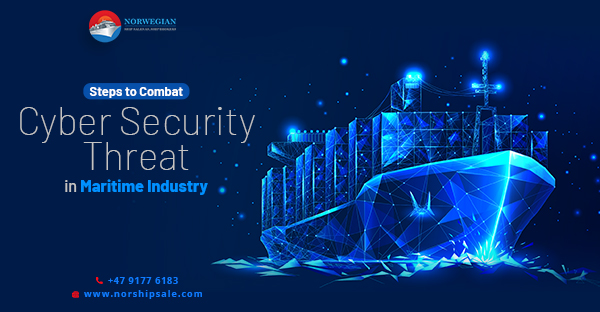Like any other industrial sectors in the world today, the maritime industry too is experiencing a major influx of advanced technologies. However, despite all progress, the cybersecurity threats can be considered to be the bane of technological developments that plague all industrial sectors in this twenty-first century. Not only can cyber-attacks cause major disruptions in the functions of a shipping company, but they can compromise the privacy and security of the passengers in your fast ferries for sale. In this blog, we tell how you should plan a cyber threat response strategy.
Create Response Team –
With digital trends and interconnectedness increasing in the maritime sector, the risk of cyber threats is at its peak. To combat and mitigate this menace, creating a response team becomes urgent who can prepare architectural responses such as partitioning the onboard networks by firewalls for preventing cyber-attacks. Being most vulnerable to cyber issues, the shipboard computer networks should have sufficient segmentation of networks and protection measures without fail.
Malware Prevention –
To put it simply, malicious content is created to get access, control, and abridge the security of computer systems. As a shipowner, you should put in place a proper anti-malware policy to help detect and eradicate malicious content and authorised access. In case an attack has already been made, you must perform the initial assessment and prepare a recovery plan. For better security measures, you may want to integrate a risk management regime in your company to develop important cyber security-related policies and practices.
Education & Awareness –
Your responsibility does not end with purchasing fast ferries for sale. Sit back and analyse the steps you are taking to protect the security and integrity of your shipping operations. Whether it is ashore or onboard, personnel should be enlightened on the importance of cybersecurity across the shipping operations. The ship owners must ensure workforce training and awareness programmes to build a security-conscious work culture within your company. Gaining security expertise will help personnel uphold the security policies and protect the integrity of the organisation.
Incident Management –
What do you do if cybercriminals have exploited vulnerabilities in your organisation’s systems? Not only should you launch an in-depth investigation of the causes and effects, but you must also take precautionary measures to prevent the same thing from happening again. Reviewing lessons, making appropriate changes, fixing security vulnerabilities are the important aspects of an incident management plan to improve resilience and lessen the effects of a cybersecurity breach.
Remote System Access –
The remote shipping access has simplified shipping operations, boosted the workforce productivity, and improved the service quality. However, this adoption has increased the risk of full-fledged cyber threat in the shipping sector. Be aware of which stakeholders have got access to the onboard systems and who have intimate knowledge of shipping operations. Identity and remote access management, an important part of the overall cybersecurity plan, should not be neglected if you are to protect the information assets of your company.
Conclusion –
While there is no denying the benefits of digitalisation, cyber threats form a grim reality of the digital revolution. When you are purchasing fast ferries for sale, you should look into the security aspects and features along with other necessary factors like functional conditions, robust construction, sustainability, and so on. But first, you should discuss the market trends with the experts before investing. To book an appointment with the professional advisors of Norwegian Ship Sales, you may call @ +47 6754 1925 / +47 9177 6183.


